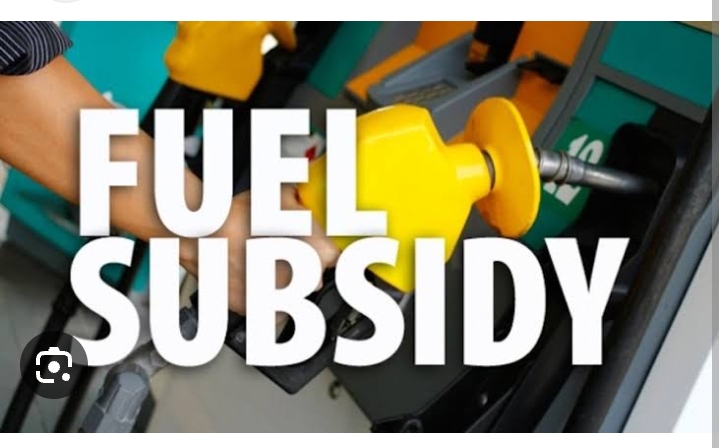What is Fuel Subsidy in Nigeria
The government’s intervention through fuel subsidies aims to alleviate the burden on citizens by ensuring affordable fuel prices. Yet, the subsidy system has been plagued by inefficiencies, corruption, and economic implications.
This preface sets the stage for an exploration of Nigeria’s complex fuel subsidy regime, shedding light on its impacts, challenges, and potential alternatives.
This article takes you through a comprehensive knowledge on fuel subsidy in Nigeria.
I. Introduction
A. Definition of Fuel Subsidy
B. Importance of Fuel Subsidy in Nigeria
II. Historical Overview of Fuel Subsidy in Nigeria
A. Early Development of Fuel Subsidy
B. Evolution of Fuel Subsidy Policies
C. Impact of Fuel Subsidy on Nigeria’s economy
D. How much does Nigeria spend on fuel Subsidy?
III. Reasons for Implementing Fuel Subsidy in Nigeria
A. Ensuring Affordability of Petroleum Products
B. Reducing Inflationary Pressure
C. Promoting Economic Growth and Development
IV. Challenges and Criticisms of Fuel Subsidy in Nigeria
A. Fiscal Implications and Budgetary Constraints
B. Corruption and Mismanagement
C. Distortions in Market Dynamics
V. The Debate Surrounding Fuel Subsidy Removal
A. Arguments for Fuel Subsidy Removal
B. Counterarguments against Fuel Subsidy Removal
C. Public Opinion and Political Considerations
VI. Fuel Subsidy Reforms and Alternatives
A. Partial Subsidy Removal and Price Deregulation
B. Targeted Subsidy Programs
C. Promoting Renewable Energy Sources
VII. Case Study: Impact of Fuel Subsidy Removal in Nigeria
A. Economic implications of fuel subsidy
B. Social and Political Ramifications
VIII. Advantages and disadvantages of fuel subsidy
IX. Recommendations for Fuel Subsidy Policy in Nigeria
A. Enhancing Transparency and Accountability
B. Strengthening Social Safety Nets
C. Developing Long-Term Energy Strategies
X. Conclusion
A. Summary of Key Findings
B. Future Outlook for Fuel Subsidy in Nigeria
Introduction
Fuel subsidy has long been a topic of great significance in Nigeria, playing a crucial role in the nation’s economy. This article delves into the intricacies of fuel subsidy, analyzing its historical context, reasons for implementation, challenges, and the ongoing debate surrounding its removal. Furthermore, this article explores alternative solutions and presents a case study on the impact of fuel subsidy removal. Finally, it concludes with recommendations for a sustainable fuel subsidy policy in Nigeria.
I. What is Fuel Subsidy in Nigeria?
Fuel subsidy refers to the financial support provided by the government to reduce the cost of petroleum products, particularly gasoline and diesel, for consumers. It is a measure intended to shield the population from the full impact of international oil price fluctuations.
B. Importance of Fuel Subsidy in Nigeria
Fuel subsidy holds immense significance in Nigeria due to its impact on the economy and the general population. By keeping fuel prices low, it ensures affordability, reduces inflationary pressure, and contributes to economic growth and development.
II. Historical Overview of Fuel Subsidy in Nigeria
A. Early Development of Fuel Subsidy
Nigeria’s foray into fuel subsidy began in the 1970s when the government aimed to use the country’s oil wealth to provide affordable energy to its citizens. Initially, the subsidy program enjoyed success, benefitting the Nigerian people and supporting economic stability.
B. Evolution of Fuel Subsidy Policies
Over time, fuel subsidy policies in Nigeria underwent several transformations due to changing economic conditions, political factors, and international oil prices. These policies faced challenges such as mismanagement, corruption, and fiscal constraints.
C. Impact of Fuel Subsidy on Nigeria’s Economy
Fuel subsidy has both positive and negative impacts on Nigeria’s economy. While it ensures affordability for consumers, it places a significant strain on public finances, distorts market dynamics, and impedes investment in alternative energy sources.
D. How much does Nigeria spend on fuel Subsidy?
The cost of fuel subsidy in Nigeria has been a subject of concern. The government has dedicated substantial funds to sustain the subsidy, which has often strained the national budget and limited resources for other critical sectors. The government of Nigeria spend a whoping 3 Trillion on subsidy in 2022.
III. Reasons for Implementing Fuel Subsidy in Nigeria
A. Ensuring Affordability of Petroleum Products
Fuel subsidy is implemented to shield the population from the full brunt of fluctuating oil prices, ensuring that essential energy sources remain affordable for all segments of society.
B. Reducing Inflationary Pressure
By keeping fuel prices stable, subsidies contribute to price stability in other sectors of the economy, preventing inflationary pressures and allowing businesses to plan their operations effectively.
C. Promoting Economic Growth and Development
Fuel subsidy is believed to stimulate economic growth by reducing transportation costs, facilitating trade, and attracting foreign investment. It also supports various industries, such as agriculture and manufacturing, by ensuring affordable energy.
IV. Challenges and Criticisms of Fuel Subsidy in Nigeria
A. Fiscal Implications and Budgetary Constraints
Fuel subsidy places a significant burden on the government’s finances, often resulting in budgetary deficits and reducing resources available for critical sectors such as education, healthcare, and infrastructure development.
B. Corruption and Mismanagement
Fuel subsidy programs have been marred by corruption and mismanagement, with reports of diversion of subsidized fuel and fraudulent practices. This undermines the intended benefits of the subsidy and erodes public trust.
C. Distortions in Market Dynamics
Fuel subsidies can lead to market distortions, disincentivizing investment in alternative energy sources, promoting wasteful consumption, and impeding the development of a more sustainable and diversified energy sector.
V. The Debate Surrounding Fuel Subsidy Removal:
A. Arguments for Fuel Subsidy Removal:
Proponents of fuel subsidy removal argue that it is an inefficient use of public funds, with the subsidy disproportionately benefiting the wealthy. They claim that the subsidy diverts resources that could be better utilized for infrastructure development, healthcare, and education.
Additionally, removing the subsidy is seen as an opportunity to promote market competition, attract private investment, and enhance economic efficiency in the long run.
B. Counterarguments against Fuel Subsidy Removal:
Opponents of fuel subsidy removal emphasize its potential negative impact on the most vulnerable segments of society. They argue that removal would lead to a significant increase in fuel prices, causing a surge in transportation costs and inflation.
Furthermore, critics contend that subsidy removal without adequate social safety nets and alternative energy options in place would exacerbate poverty and widen the income gap in Nigeria.
C. Public Opinion and Political Considerations:
Public opinion on fuel subsidy removal is divided. While some advocate for its removal due to the perceived inefficiency and corruption associated with the subsidy, others fear the potential socioeconomic consequences.
Politicians face the challenge of balancing public sentiment, economic considerations, and their own political interests when making decisions regarding fuel subsidy reform.
VI. Fuel Subsidy Reforms and Alternatives:
A. Partial Subsidy Removal and Price Deregulation:
To address concerns regarding fuel subsidy, partial subsidy removal and price deregulation have been proposed as potential reforms. This approach aims to gradually reduce the subsidy while allowing market forces to determine fuel prices.
By doing so, it attempts to mitigate the immediate impact on consumers and provide an opportunity for the development of a more competitive and efficient energy market.
B. Targeted Subsidy Programs:
Another alternative to complete subsidy removal is the implementation of targeted subsidy programs. This approach aims to redirect subsidy funds to specific groups, such as low-income households, farmers, and transportation providers. By directly assisting those in need, targeted subsidy programs seek to minimize the adverse effects of subsidy removal on vulnerable populations.
C. Promoting Renewable Energy Sources:
To reduce dependency on fossil fuel subsidies and mitigate the environmental impact of fuel consumption, promoting renewable energy sources is crucial. Investing in renewable energy infrastructure and incentivizing its adoption can help diversify Nigeria’s energy mix, create employment opportunities, and contribute to a more sustainable and resilient economy.
VII. Case Study: Impact of Fuel Subsidy Removal in Nigeria:
A. Economic Implications of Fuel Subsidy:
Previous attempts to remove fuel subsidy in Nigeria have had significant economic implications. While subsidy removal can potentially reduce government spending, it often leads to short-term inflationary pressures and increased production costs. Moreover, the removal of subsidies without comprehensive economic reforms can hinder economic growth and investment.
B. Social and Political Ramifications:
The removal of fuel subsidy can have far-reaching social and political ramifications. Higher fuel prices affect transportation costs, which ripple through the entire supply chain and can lead to increased prices of essential goods and services.
This, in turn, disproportionately affects low-income households. Social unrest and protests have been witnessed in response to subsidy removal, highlighting the need for careful consideration of social consequences.
VIII. Advantages and disadvantages of fuel subsidy
Advantages of Fuel Subsidy
Price Stability: Fuel subsidies ensure that fuel prices remain affordable for consumers, particularly those with low incomes. This helps to stabilize the cost of transportation and basic commodities, indirectly benefiting the entire population.
Poverty Alleviation: Subsidized fuel prices can alleviate poverty by reducing the overall cost of living. This allows individuals and households to allocate their limited resources to other essential needs, such as food, education, and healthcare.
Economic Growth: Stable and affordable fuel prices support economic growth by reducing transportation costs for businesses. Lower transportation costs translate into increased productivity, improved competitiveness, and potentially attract more investment in various sectors of the economy.
Disadvantages of Fuel Subsidy
Fiscal Burden: Subsidizing fuel prices places a significant burden on the government’s finances. The funds allocated to fuel subsidies could be redirected to other critical areas, such as education, healthcare, infrastructure development, and social welfare programs.
Corruption and Mismanagement: Fuel subsidies are susceptible to corruption and mismanagement, as they involve large sums of money and complex distribution systems. There have been instances of fraud, smuggling, and diversion of subsidized fuel, which not only drain government resources but also undermine the intended benefits of the policy.
Market Distortions: Fuel subsidies can distort market dynamics and discourage investment in alternative energy sources. The artificially low prices of fuel may discourage the adoption of renewable energy solutions, hindering the country’s progress towards a more sustainable and diversified energy sector.
Recommendations for Fuel Subsidy Policy in Nigeria
A. Enhancing Transparency and Accountability: The government should prioritize transparency and accountability in the administration of fuel subsidies.
This includes regularly auditing subsidy programs, implementing effective monitoring systems, and prosecuting individuals involved in fraudulent activities. Public disclosure of subsidy-related information will foster trust and ensure that the intended beneficiaries receive the benefits.
B. Strengthening Social Safety Nets: To mitigate the potential negative impact of subsidy removal on vulnerable populations, the government should establish and expand social safety net programs.
Direct cash transfers, targeted subsidies, or specific support schemes can be implemented to cushion the effects on low-income individuals and ensure that the most vulnerable are not disproportionately affected.
C. Developing Long-Term Energy Strategies: Nigeria should prioritize the development of long-term energy strategies that reduce reliance on fossil fuels. This includes diversifying the energy mix by promoting renewable energy sources, improving energy efficiency, and investing in infrastructure for sustainable energy generation and distribution.
Conclusion
In conclusion, fuel subsidy in Nigeria has both advantages and disadvantages. While it provides short-term relief for consumers and stimulates economic growth, it also poses fiscal challenges, encourages corruption, and impedes the development of alternative energy sources.
To strike a balance, it is crucial for the Nigerian government to enhance transparency, strengthen social safety nets, and develop long-term energy strategies.
By doing so, Nigeria can gradually transition to a more sustainable and efficient energy sector while safeguarding the interests of its citizens.
The advantages of fuel subsidy in Nigeria include price stability, poverty alleviation, and economic growth. However, the disadvantages include fiscal burden, corruption and mismanagement, and market distort.

